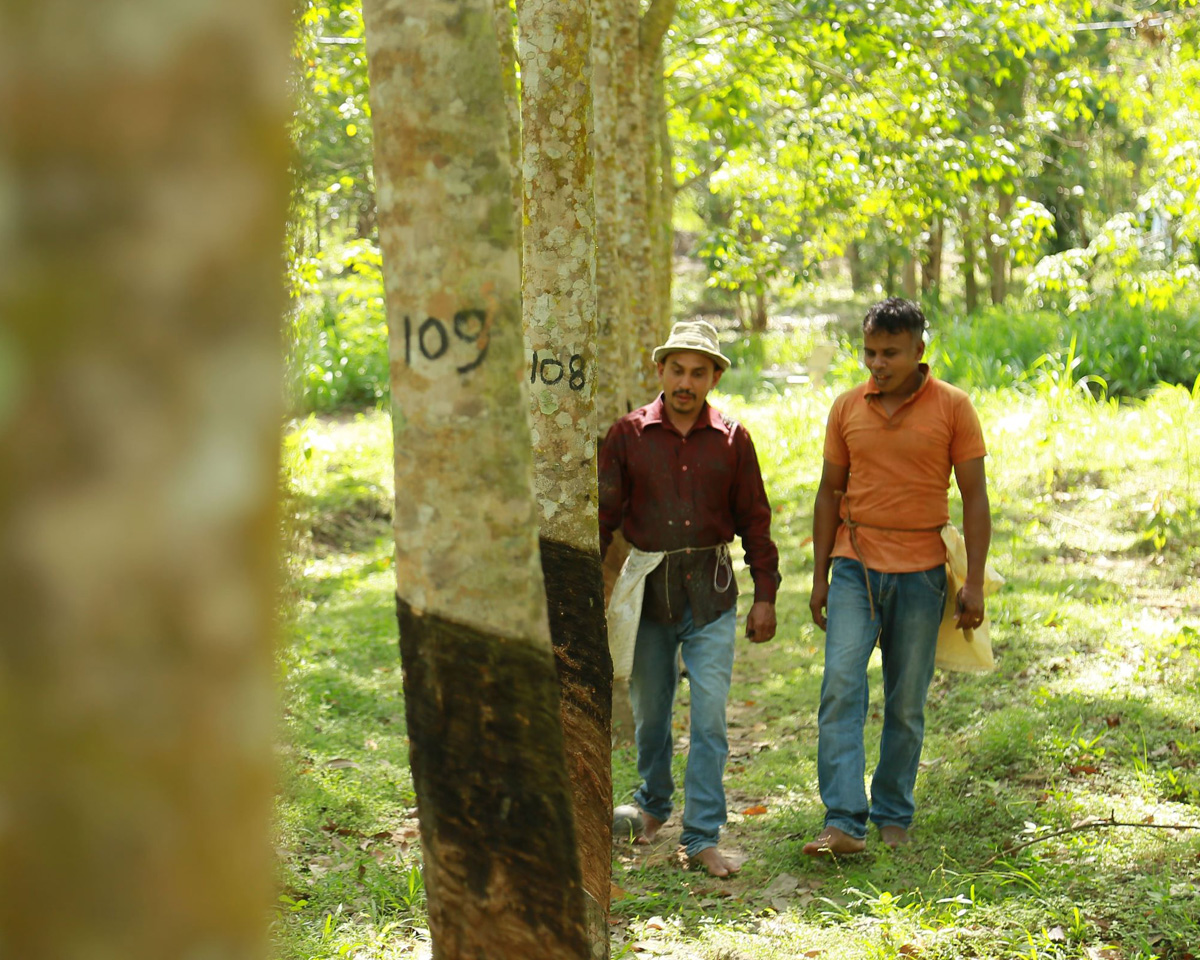
GRI Enhances Connections with Rubber Farmers
Posted on 18 August 2021
Sri Lankan natural rubber is the key raw material used in GRI tires. Thus, natural rubber farmers are important stakeholders in the GRI ecosystem. This ecosystem focuses on sustainability and aims to inspire the farming communities by recognizing their work as well as providing knowledge and skills for their development and optimizing the yields from their natural rubber farms.
GRI works with about1,800 natural rubber farmers from Monaragala, Rathnapura, Kalutara, and Kegalledistricts in Sri Lanka. Rubber collection centers have been established by GRI in numerous locations in these regions so that natural rubber farmers have easy access to trade their rubber collections on a weekly basis.
GRIcontinuously supports natural rubber farmers through various programs. The three focus areas are enhancing productivity, social empowerment, and industry sustainability. GRI finds solutions to enhance the lives of the farming families as well as enrich each other with technical tools, products, and services. This includes training programs to enhance productivity and yield, leadership training as well as access to markets. “We also provide rubber tapping tools and farmer supplies. We train them on new technologies and distribute reading materials to enhance their knowledge,” explained Mr. NilukaKarunaratne, Procurement Manager of GRI.
It is not only the rubber farmer that receives support, as GRI takes on an overall perspective and focuses on the social development of the family and the entire community. School children are provided with educational materials and schools are provided with sports equipment. GRI hopes to continue with other initiatives such as building libraries and IT facilities for these schools in the future. Through such endeavors, it is not only the rubber farmer that benefits but the entire community.
“We have also introduced industry best practices to the rubber farmers, focusing on sustainability through GRI’s GREEN X Circle initiative where we nurture a global farmer ecosystem connecting natural rubber farmers, and crop farmers whose GRI agricultural tires to sustain their livelihoods and produce food. We focus not only on the present but also on future generations," explained DrMahesha Ranasoma, CEO of GRI.
With theCOVID-19 pandemic and the resultant travel restrictions, GRI did not abandon the Sri Lankan natural rubber farmers but continued to collect their harvest by directly going to them. Thus, the farmers were able to continue with their livelihood even during challenging times. GRI was the first tire manufacturer to implement such a system.
“We ensure that we pay our natural rubber farmers a fair and competitive price so that they can take care of their families. We encourage and support them to develop their rubber plantations, and we enable social upliftment," explained Dr. MaheshaRanasoma.
GRI produces high-grade specialty tires that are built sustainably using pure natural rubber in Sri Lanka. Founded in 2002, the company produces material handling solid tires, radial agriculture tires, and construction tires. GRI has operations in9 countries, and a business presence in more than 50 countries worldwide. Since2018 GRI has been advancing in the rapid expansion of its specialty tire plants in Sri Lanka and its operations in key countries. GRI ensures its commitment to sustainability and environmental protection throughout its operations locally and globally.